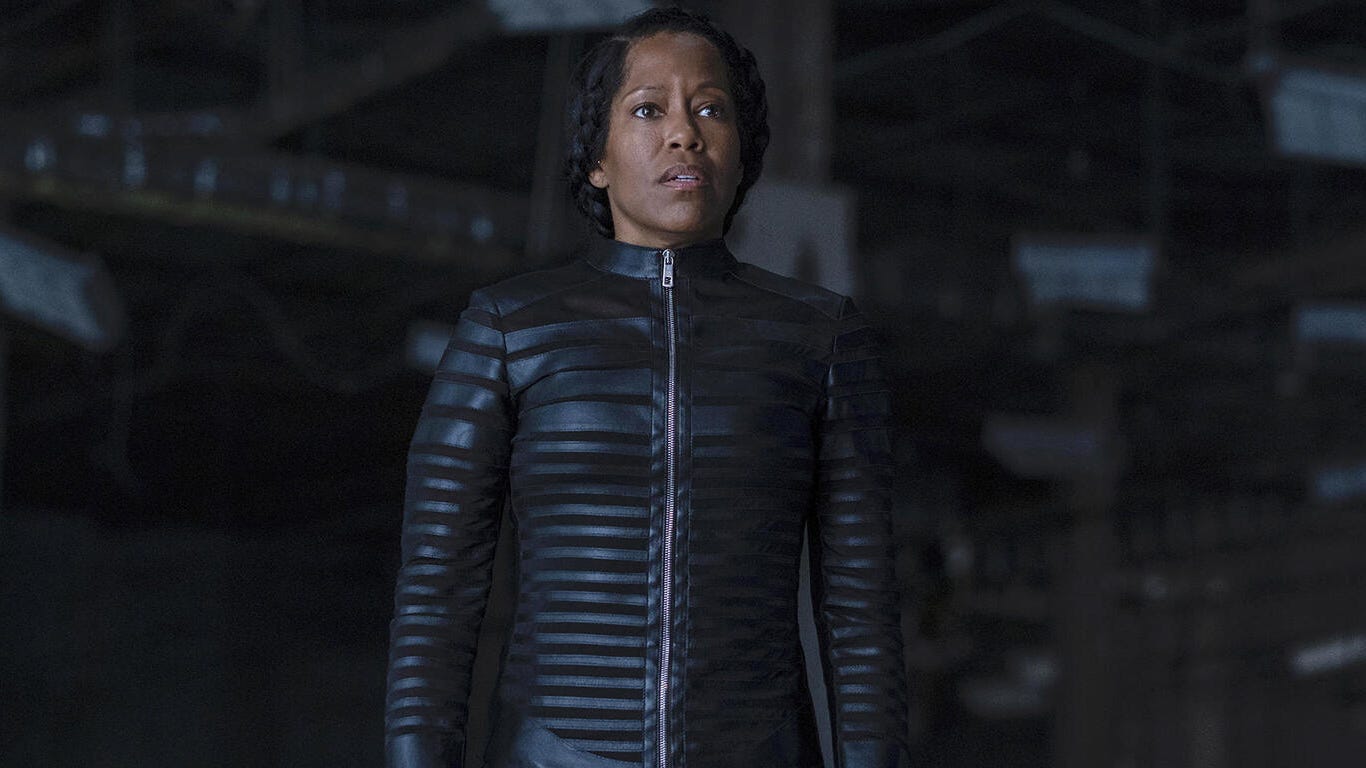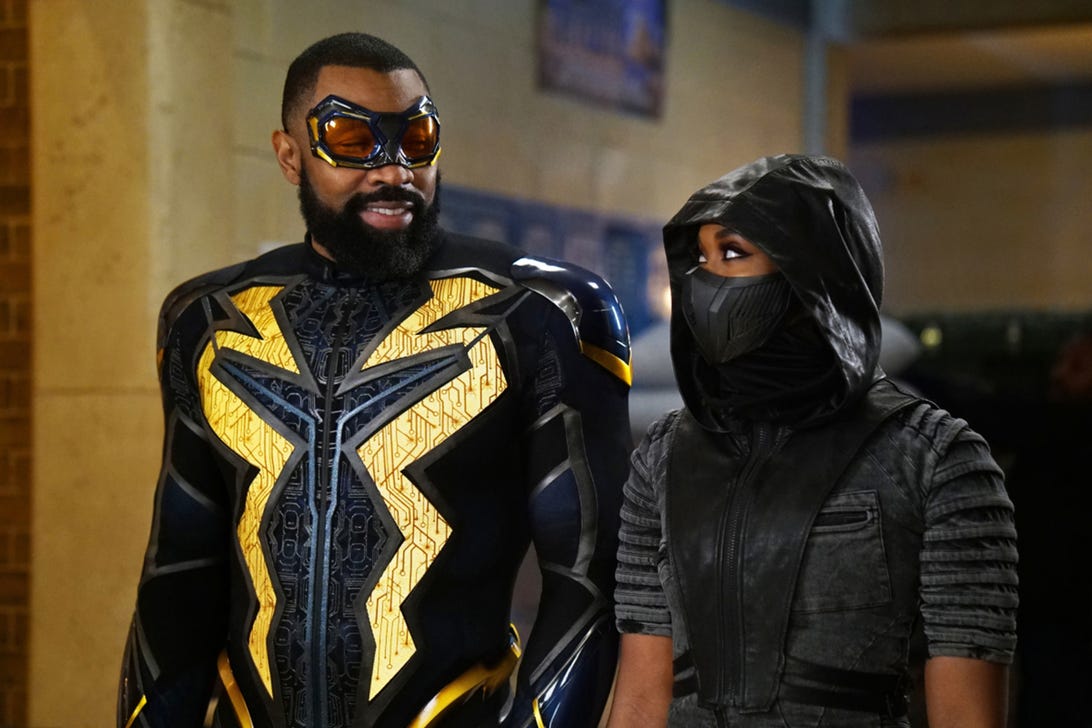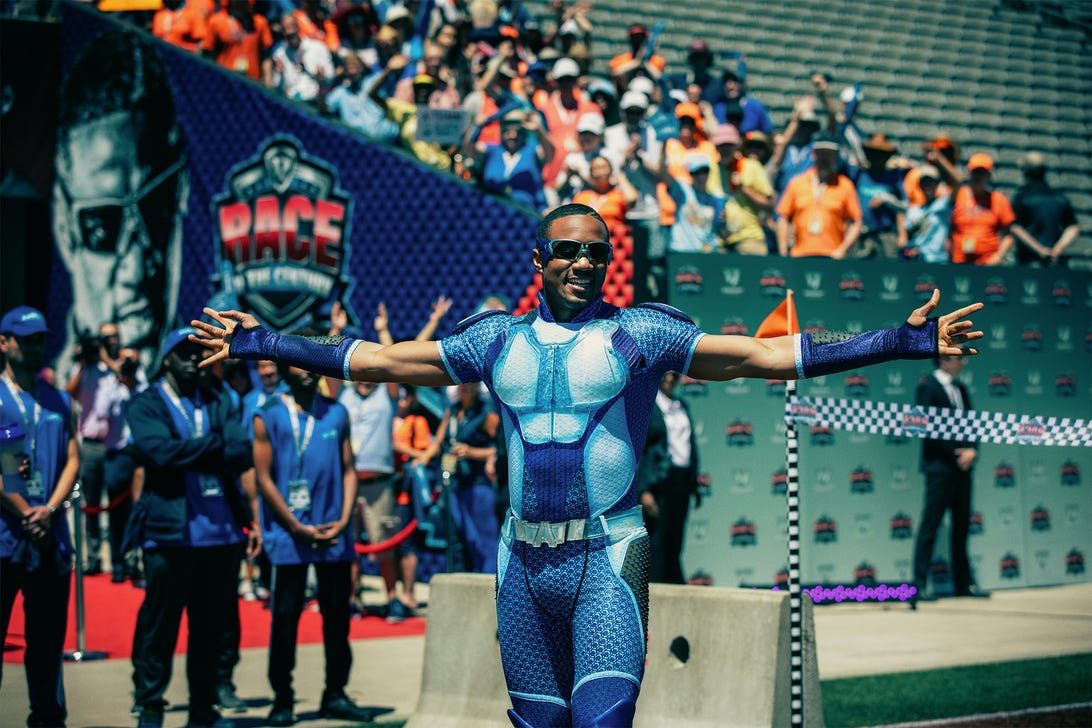
Black Creators Are Hopeful for a Future Where Black Superheroes Aren't 'Niche'
Industry veterans discuss the progress that's been made, hopes for the future, and fears that the boom will go bust

In the 1990s, black storytellers were having a moment in Hollywood. As noted in this now kinda cringey New York Times story, black was "in," and Hollywood decision-makers were "beginning to recognize that a white audience will spend money to see black movies." Black filmmakers like Melvin Van Peebles, the Hudlin brothers, and Robert Townsend got resources and support to tell their stories; on TV, shows like Living Singleand Moeshabecame hits and helped then-burgeoning networks Fox and UPN grow their businesses. The era didn't last. By the 2000s, black film directors found themselves no longer in demand, and on TV, network mergers and increased appetites for reality TV meant pivoting away from majority-black shows in favor of appealing to "mainstream" (read: white) audiences, as outlined in the 2005 bookThe Sitcom Reader.
Some 30 years later, black storytellers are wondering if history is about to repeat itself, even as they celebrate progress. Today, black superheroes are finally thriving on TV, with shows such as Doom Patrol andThe Boysputting black superheroes front and center after decades of being relegated to the sidelines or ignored altogether. Steps forward in representation have been a long time coming, but with characters like Sister Night (Regina King) of Watchmen, and Sam Wilson (Anthony Mackie) of the upcoming The Falcon and the Winter Soldier dismantling the myth that black heroes can't appeal to everyone, it sure seems as if we're only at the beginning of a movement with boundless potential. To hear experts and creators tell it, though, optimism comes with caution.

"Is it a boon?" Denys Cowan, co-founder of Milestone Media and co-creator of the comic book hero Static, replied when asked how he felt about the sudden increase in black superheroes on TV. "It's good to see more diversity, but I don't know if it's really enough." Cowan broke down barriers in 2000 with Static Shock, an animated kids series about a black teen hero named Static that ran for four seasons, and recalled going into meetings where white executives told him point-blank that black people didn't buy comic books. While he loves that stories like Black Lighting and Watchmen are being told now, Cowan said there are so many more to tell. However, there's a dearth of network executives willing to put faith and dollars into these projects. "It's still a struggle," Cowan said.
The Rise of Black Superheroes: A Black History Month Celebration
Creators and people in the so-called blerd community live in a state of cognitive dissonance: joy over finally seeing these stories on TV, fear that it could be fleeting, and skepticism about the depth of the portrayals. "There is a kind of paradigm shift," said Evan Narcisse, who co-wrote Rise of the Black Pantherwith Ta-Nehisi Coates and contributed to the recent Marvel's Voices' #1. On the one hand, Narcisse explained, shows like Luke Cage and Black Lightningrepresent a turning point, because "not only are the black characters the main focus of these shows, the creative rooms are black as well. Luke Cage didn't have to explain every little bit of slang or in-group talk to try to please audiences who are not like black." That said, "there's an awareness this could disappear tomorrow," Narcisse explained. "Everyone's grateful to be getting their chance. But you see someone like Greg Berlanti -- and no shade to Greg Berlanti, because what he's accomplished is impressive -- but [Black Lightning executive producer] Salim Akil only gets in because Greg got him in. The fact still remains that white decision-makers still need to be the ones to open the door."

Cress Williams and Nafessa Williams, Black Lightning
Annette Brown/The CWKarama Horne, a contributing editor for SyFy Wire and genre geek known as theblerdgurl, says she's filled with equal parts excitement and reservation -- aware that previous projections of a superhero bust didn't exactly pan out either. "To a certain extent, I do think the concept of black superheroes might be considered a passing fad. But people said that beforeBlack Panther came out and made a billion dollars. And we're hearing those same voices saying that again." Rather than anxious, Horne is more hyped, taking delight in seeing how Black Lightning depicts a black family in fresh ways, or news of the forthcoming Disney+ seriesMoon Girl and Devil Dinosaur, which will focus on a 9-year-old girl who's also the smartest character in the Marvel universe.
Eartha Kitt's Empowering Performance as Catwoman Turned a Short-Lived Role Into a Lasting Legacy
Nonetheless, Black Panther's release in 2018 did mark a turning point, and the film's success ironically prompted a somewhat painful, frustrating observation that writer Jameel Salim (South Park, Disenchantment) put succinctly: "Look at how much money Black Panther made. You think there'd be 10 black superheroes movies in development, but there's not. I think [executives] attribute its success more to Marvel than to the power of the black dollar." Now working with 50 Cent to bring the animated series Trill League to the new streaming platform Quibi, Salim said it's these streamers -- Amazon with The Boys, Netflix with Raising Dion and Luke Cage -- that have opened up opportunities for black superhero stories, some of which likely would never make it to screen were it not for the abundance of platforms looking for content. "[Black stories] are still looked at as a niche market," he said, noting how streaming feels like less of a risk than a film or primetime show on a major network. "It sucks, but at the same time, I get it. [The system] is run by white people. Even if it's just subconscious, they tend to lean toward projects they can see themselves in."

A-Train, The Boys
Jan Thijs/AmazonEven if the number of black superhero characters making it to big and small screens slows down, the experts agree that the breadth and nuance in the stories being told now have changed TV for the better. Post-Watchmen, just about every black creator has signed off on a lifetime invitation to the proverbial cookout for Damon Lindelof, who shepherded an unprecedented story about a black female crime fighter, a black time-traveling god, and the Tulsa Race Massacre to HBO. Many hail Black Lightning for the ways it shows a black family figuring out how to function under incredibly trying circumstances.
"We've moved beyond tokenism," Narcisse said. "Black nerd communities are attuned to the ways we're represented. [African Americans] can get rendered into mascots easily, so we're always watching to see if this black person gets to be a [dimensional] person." Creators hold hope for expanded possibilities in the future when it comes to mining unexplored layers of black identity on-screen. Narcisse, said that he'd like to see more black queer points of view, and more inter-generational conflicts explored within the genre. Horne wants to see more kids' content; Salim wants to see more young black superheroes who are hip and cool as opposed to the kinda nerdy type, like Miles Morales of Spider-Man: Into the Spider-Verse. (Denys Cowan, for the record, would like to remind everyone that Milestone Media, a company he helped create decades ago, featured a diverse range of characters including LGBTQ folks, before such representations started to become more common.) Whatever happens next, creators and fans alike don't take any of this for granted.
"It's a good moment," Narcisse said. "It's promising. I just hope the oxygen tank doesn't get turned off anytime soon."
For Black History Month, TV Guide is celebrating black superheroes in TV and film. As part of The Rise of Black Superheroes, we're honoring the legacies of pioneers like Luke Cage, War Machine, and actress Eartha Kitt; examining how blackness shapes the identities of characters like Iris West, Black Lightning, and John Diggle; exploring what today's black heroes mean to kids of color; and celebrating the greatest black superheroes of all time. You can check out more content from The Rise of Black Superheroes here.
